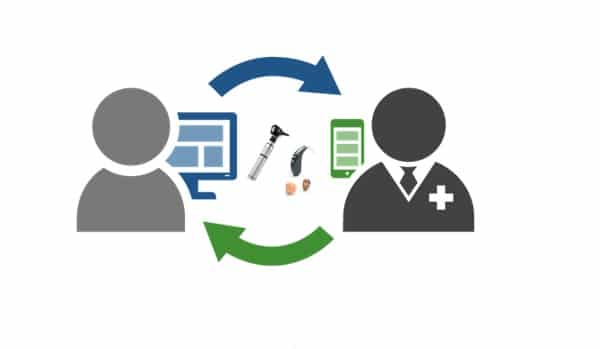Economics is all about individuals, companies, nations parlaying their limited resources into trades that maximize outcomes. At least they think or hope that their trades will have that effect. We’ve talked about some of the underlying concepts in previous posts: Utility is a person’s internal measures of perceived benefit from acquiring something; rationale behavior is needed to make the best trades to maximize utility. Full information is needed to be rational, but nobody has full information in the real world. Nevertheless, we keep making daily transactions and muddling through, hopefully improving our situations. On what basis do we do so? This is a question that brings eonomists, neuroscientists, evolutionary biologists, and cognitive psychologists together to discuss surprising topics like testosterone. Who knew that audiologists needed to know about testosterone!
Here’s a real-life, non-audiology, example. A professional friend recently consulted for a small business office, working directly with the owner. It was a mutually unsatisfactory experience. The consultant provided fact-based information and direction. The stressed and busy owner was impatient, unable or unwilling to absorb the information, and came across as dismissive and rude. He paid my friend, she took the money. The transaction did not produce expected utility for either side. Her comment forms the title of this post: “If I’d met him on eHarmony, I wouldn’t have called him back.”
- Why were these two together in the first place? The economic answer is that both offered something of utility to the other: she had expertise, he had dollars; he needed expertise, she needed income. In a rational world, both should increase their utility by interacting. Didn’t happen, so basic economic theory is inadequate. Bring in the psychology.
- What went wrong? At the risk of sounding facetious, too much testosterone. No doubt that aggression-ladened male hormone evidenced by the harried male business owner was one side of the equation. The other side of the equation is more interesting. A Holland experiment by Dutch psychologists showed men’s photographs to young women who got a drop of testosterone or a placebo under their tongues. Women who got the testosterone drop were significantly more distrustful of the men in the photographs than those who got a placebo. The study concluded that testosterone “seems to motivate for rational decision-making, social scrutiny and cleverness, the apparent tools for success in a modern society.” In short, consultant checked business-guy out, decided she didn’t trust him, and adapted her behavior by opting out of further interaction. Back to economics — she decided the transaction wouldn’t maximize her utility.
- What was up with business guy? The answer comes from behavioral economics. He probably didn’t intend to get all James Cagney with the consultant, but his testosterone rose as he faced high information processing costs that came with her recommendations. He feared the drain on his (current) resources and exhibited “loss aversion” behavior. Loss aversion is weird but very real — we’re about twice as likely to prefer avoiding losses as we are to making gains. It makes us think winning $101 is a bad deal if we lose $100. Instead, “we have to win $200 to make up for the pain of losing $100.” Business guy would rather avoid short-term loss by paying the consultant to go away than realize long-term financial gain by manning up and dealing with (too much) new information.
- How could this situation have been saved? By trust building, which brings us full circle to hormones. Trust is a mental process influenced by oxytocin, a “touchy-feely” hormone that surges when nice things happen. Oxytocin surges, trust grows– as demonstrated in a 2005 Swiss experiment where players in an investment game were more willing to hand over their money to strangers when they got oxytocin boosts. Dale Carnegie was right: playing nice, being credible, and being respectful go a long way when it comes to gaining Utility.
It does not take much to transfer this to daily clinical encounters. Consumers enter our offices with insufficient information but hopes of gaining utility by spending their time and money with us. We, in turn, hope to use our expertise to provide the proverbial “solutions” in mutually-beneficial transactions. We do that best by inspiring trust and we inspire trust by listening respectfully, interacting compassionately, establishing credibility by providing sufficient information without provoking information overload, and minimizing loss avoidance by demonstrating expected gains from proposed solutions with pricing that does not induce cognitive dissonance. We also do it by making the environment comfortable–good chairs, welcoming front office, cookies, coffee, current magazines, nice wall colors and pictures, good HVAC system, short waits — all the things we’ve been told many times to do as part of good customer service. Maximize oxytocin, minimize testosterone. To the extent that we are successful, we convert a consumer into a loyal patient. When that happens, successful economic transactions result in which both provider and patient achieve maximum outcomes.
That last paragraph sounds a lot like pop psychology boiler plate, but I hope it gains real meaning when placed in the context of the preceeding evidence-based discussion. I’ll be returning to the idea of Utility, as promised, in a future Economics 101 post.
Photo courtesy of killingtime.com







Now, perhaps I can supplement my retirement by making one pill for the clinician (oxy-whatever and anti-testosterone (progesterin?)) and another for the patient (perhaps some mild hallucinatory concoction). I see a whole new career here. Know any easily influenced VCs?
How about just a bit more oxytocin all around? but what is a VC? All I can think of is volumne control and I haven’t seen one of those for years….